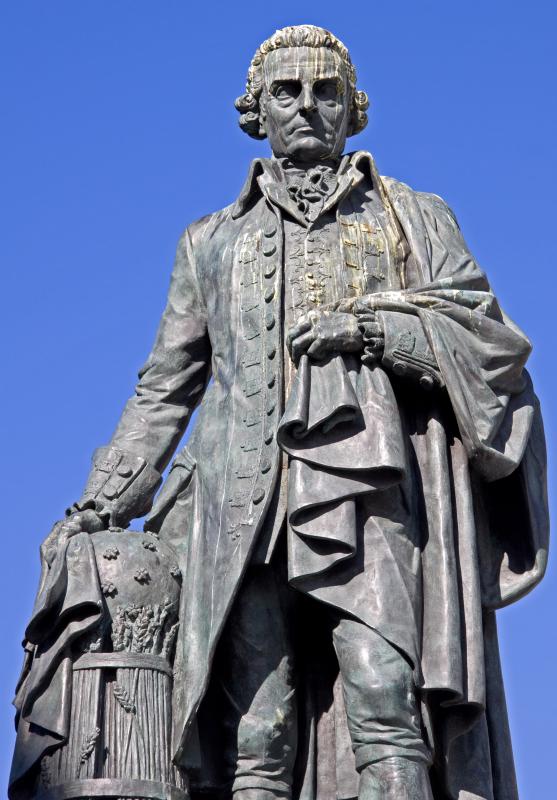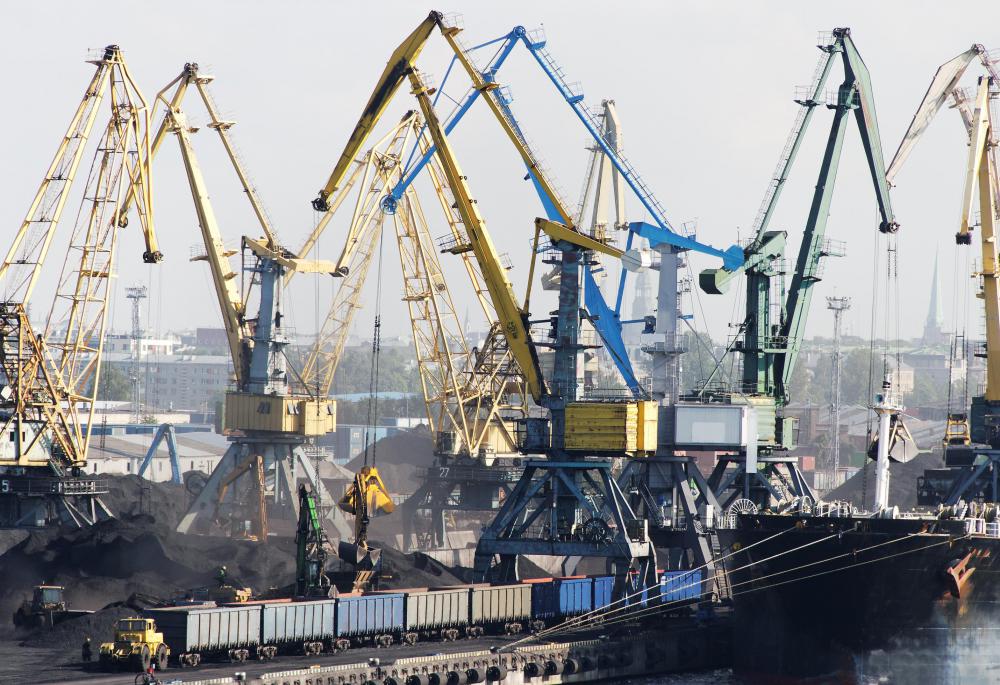At WiseGEEK, we're committed to delivering accurate, trustworthy information. Our expert-authored content is rigorously fact-checked and sourced from credible authorities. Discover how we uphold the highest standards in providing you with reliable knowledge.
What Are the Different International Trade Theories?
International trade is an economic exchange or transaction involving the movement of goods, services and capital across borders from one country or territory to another. Although trade has flowed around the globe for thousands of years, it is in modern times that its economic importance has significantly increased. In most countries, international trade now plays a major part in their economies. Over time, economists have developed several international trade theories not only to understand it better but to guide governments in policy making and help businesses to profit from it. Some of the most influential international trade theories have been mercantilism, absolute advantage and comparative advantage.
Mercantilism was the most influential early trade theory; it dominated the economies of most western European nations from the 1500s through the late 18th century. The main doctrine of this theory was that the economic well being of a country could be improved by exports alone; imports were to be reduced and, if possible, avoided. All trade was carried out under governmental authority, and the financial wealth of a country was defined by how much gold it accumulated. A major problem with mercantile theory is that the focus on exports at the expense of imports actually hampers the development of international trade.

During the late 18th century, economist Adam Smith developed the theory of absolute advantage, which became the most dominant of the international trade theories of its time. This theory holds that there are benefits to be gained from importing as well as exporting. Further, this theory actually encouraged imports by maintaining that each country should focus on producing and exporting what it is best at: the goods and services that it has an absolute advantage in producing. National wealth is measured not by owning gold but by the living standards of the populace. This theory falters because it cannot explain why a country with no absolute advantage in producing any product would engage in international trade.

Developed in the early 19th century by economist David Ricardo, the theory of comparative advantage became the foundation of future international trade theories. It is often viewed as the most important concept in modern international trade theory. Its central principle is that a country should specialize in exporting and producing products it has a relative, or comparative, advantage in when compared to other nations, and it should import those products with which it is at a comparative disadvantage. This theory has continued to be refined in modern theories of international trade because some of the assumptions that it makes limit its application in the real world.
AS FEATURED ON:
AS FEATURED ON:












Discussion Comments
I'm writing a paper on the connection between international trade and globalization.
I think that both absolute advantage and comparative advantage are international trade theories that support the concept of globalization. They both encourage imports and exports. It makes sense because when these theories were introduced, the world started to become globalized. Globalization was very limited during mercantilism.
Does anyone agree with me?
@SarahGen-- If I remember correctly from my macroeconomy class, comparative advantage is when a country can produce something at a lower opportunity cost than another country. Opportunity cost is the lost opportunity to produce something else because you're investing in what you're currently producing. So if there is a product that a country will be able to produce more efficiently than what it's producing now, it should switch to that product because of comparative advantage.
Comparative advantage is the new international trade theory. We can say that it's the major driver of global trade. This is how many countries decide what to produce and what to trade.
What does it mean for a country to have comparative advantage in a good?
Post your comments